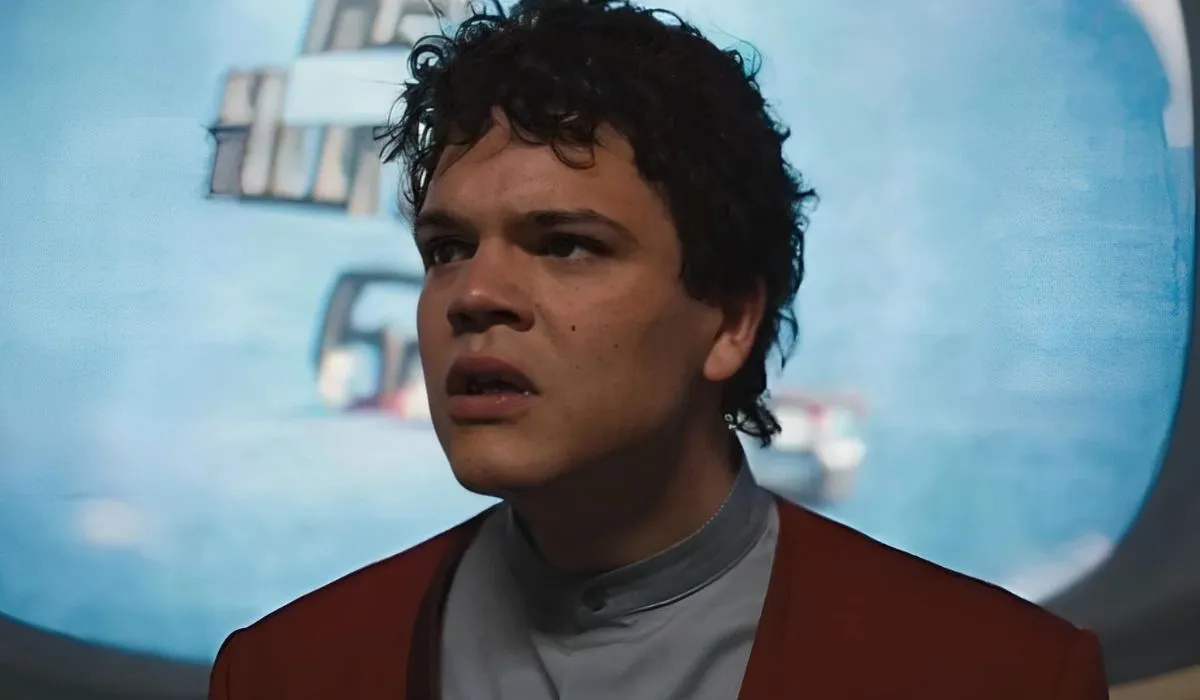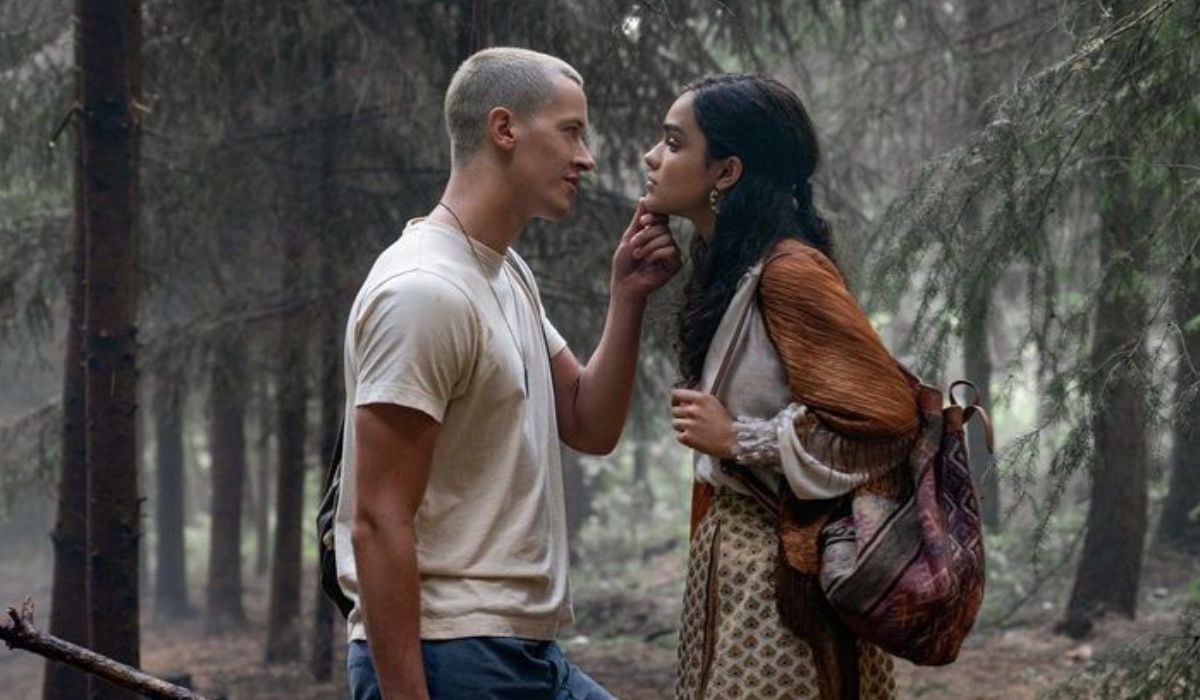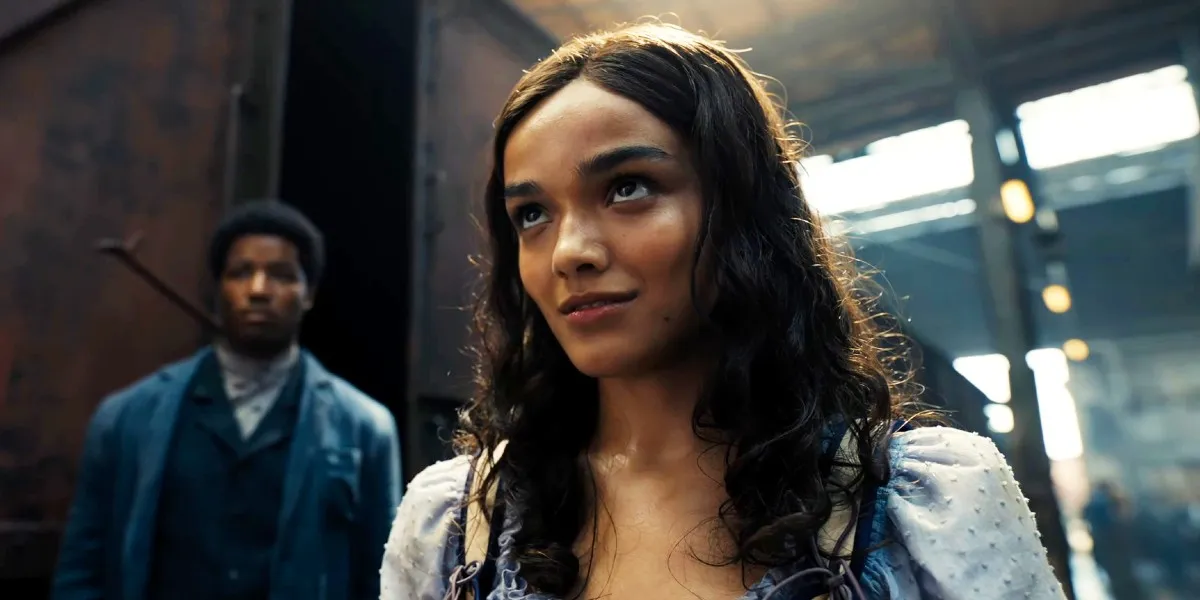How ‘The Ballad of Songbirds & Snakes’ Sets the Stage for Everything To Come in ‘The Hunger Games’
Truly a 10/10 prequel.

The Ballad of Songbirds & Snakes, the prequel to both The Hunger Games movies and books—the pillar of the young adult dystopia genre—is finally out in cinemas everywhere.
Set 65 years before the events of the 74th Hunger Games, in which a girl from District 12 volunteers to enter the arena to save her little sister, The Ballad of Songbirds & Snakes travels back to the very beginning of the games.
By the time the 10th Hunger Games roll around, the people of the Capitol have grown uninterested in this brutal contest, which consists of dumping the 24 tributes into an arena with a bunch of weapons and having them kill each other in a matter of hours. To raise the public’s involvement in the Games, the Gamemakers—under the direction of Viola Davis’s Doctor Volumnia Gaul—decide that it needs to be turned into a spectacle.
Each tribute gets assigned a mentor; picked from the ranks of the best students of Capitol’s Academy, the mentor introduces their tribute to the public, makes them as likeable as possible, and wins sponsors to help them survive. And as fate would have it, the female tribute from District 12, Lucy Gray Baird—brilliantly played by Rachel Zegler—is assigned to Coriolanus Snow (an equally amazing Tom Blyth), the ambitious heir of a family that’s fallen out of favor among the Capitol’s elite.
But the Games are only one of three acts that make up this prequel, the last of which really sets the scene for everything that is going to happen in Panem for the next 60-plus years, until Katniss Everdeen and Peeta Mellark are Reaped for the second-to-last Games to ever be held.
So let’s break it down, with obvious spoiler warnings for the end of The Ballad of Songbirds & Snakes ahead.
What happens to Coriolanus Snow in The Ballad of Songbirds & Snakes?
Coriolanus Snow, ambition personified, starts the movie set in his ways: he will win the money offered to the Academy by the immensely rich Plinth family, he will go to University, and he will have a brilliant career in the Capitol that will restore his family name to what it once was before the Dark Days.
His encounter with Lucy Gray Baird has the potential to change all of it. Coriolanus believes himself in love (though one could argue that this love is only ever a desire to control and possess), and breaks the rules to save Lucy Gray’s life in the arena.
When Coriolanus is forced to join the ranks of the Peacekeepers as punishment, he even asks to be dispatched all the way to District 12 to be with Lucy Gray, and it seems as if he begins to accept the possibility of a life there with her.
Ultimately, Coriolanus—still as ambitious as he was at the beginning of the movie—does not understand Lucy Gray any more than he understands the Districts and their people. That’s why he can’t see what would inspire his friend Sejanus Plinth (Josh Andres Rivera) to help the District’s rebels.

So when given the opportunity to advance himself, Coriolanus immediately takes it: he records Sejanus talking about his involvement with the rebels with a jabberjay and then sends his friend’s unwitting confession all the way to the Capitol and Dr. Gaul.
It’s an action Coriolanus can’t take back, and one that ends up causing Sejanus’s death. After both Mayfair Lipp and Billy Taupe are killed—Mayfair by Coriolanus’s own hand—during an altercation about secret weapons and possibly escaping from the District, things fall apart. Despite their money, the Plinths can’t save their son from execution, so Sejanus is hanged at the Hanging Tree together with the people he planned to help.
Lucy Gray, knowing that suspicions will still fall on her considering that she was involved with Billy Taupe and that Mayfair Lipp orchestrated her Reaping, asks Coriolanus to join her in running away. He initially agrees because he sees no other option—if discovered, his fingerprints on the gun with which he shot Mayfair mean certain death.

But then Coriolanus finds that same gun stashed in the hut where he and Lucy Gray stop before wandering further outside of District 12. Getting rid of the gun would mean eliminating any evidence linking him to the murder of Mayfair Lipp. And Coriolanus, ambitious, ruthless, and striving for control to the very end, puts a violent end to his relationship with Lucy Gray (more on this in a moment) and boards a train back to the Capitol.
His final scenes truly are the genesis of Donald Sutherland’s President Snow in the four Hunger Games movies. Coriolanus returns to the Capitol where he becomes a student under Dr. Gaul, attending University with a financial endowment from the Plinths, who believe Coriolanus was their dead son’s best friend.
The Games as we will come to know them are very much a product of Coriolanus’s mind. The change from “simple” bloodletting to an elaborate spectacle of death that is the centerpiece of the Capitol’s social calendar starts with his proposal to add sponsors and gifts to the arena.

Ultimately, Coriolanus’s story is that of someone who could have done good and had several opportunities to do so, but chose power instead—climbing over everyone and everything, his humanity included, to get it.
What happens to Lucy Gray Baird in The Ballad of Songbirds & Snakes?
As for Lucy Gray, she is very much a performer from the start—a sentiment that has been circulating for a while within the Hunger Games fandom, and one that has been echoed by Rachel Zegler herself, who said, “Lucy Gray is a performer forced to fight and Katniss is a fighter forced to perform.”
Lucy Gray immediately understands that Coriolanus could potentially save her life in the arena and so she goes along with his scheme, acting charming for the cameras and even singing at her final interview. In this sense, she’s much more similar to Peeta than Katniss; Peeta knew how to play the publicity game much better than Katniss, dropping not one but two bombs in the interviews before both of his Games.
Still, that doesn’t mean that Lucy Gray isn’t a hardened survivor. Much like Katniss, she’s resourceful and she knows that trust is a very rare and valuable currency to be used sparingly, as she herself tells Coriolanus during their excursion at the lake. While I do believe that she might have loved Coriolanus more than he thought he loved her, I also don’t think it was completely unconditional. Lucy Gray has her best interests in mind at all times, so when she understands that Coriolanus has lied to her, she immediately turns her mind to how she can save herself.
If Lucy Gray had trust in Coriolanus, she might not consider the hidden weapons in the hut such a threat. But Coriolanus has just lied to her about the people he killed; she knew of two—Bobbin in the arena and Mayfair Lipp—but Coriolanus admits to three. He tries to save face by saying that his third kill was the old version of himself, which he destroyed to run away with her, but of course they both realize that he’s talking about his betrayal of Sejanus.

Lucy Gray told Coriolanus that trust is of paramount importance; knowing that he broke that trust, she can’t just go on as if nothing happened when they discover the weapons. Coriolanus finds himself with a very easy way back into the Capitol’s graces: get rid of both the weapons and Lucy Gray, and have his slate wiped clean.
That’s why Lucy Gray sets her trap with a snake and disappears into the woods, using the mockingjays to hide her escape. She becomes the ghost girl of the song for which she’s named, and Coriolanus does his best to erase her memory from his mind just like the Capitol does with her role in the Games.
Lucy Gray’s fate remains a mystery, with fans discussing various theories that include her dying in the woods and making it to District 13. Regardless of her actual fate, Lucy Gray lives in Snow’s mind, forever beyond his grasp, until she returns in the shape of another girl from District 12—one who knows the words to the song Lucy Gray composed about the Hanging Tree, and who will take the mockingjay as her symbol when she burns down the Panem that Snow has built on suffering.

That’s why The Ballad of Songbirds & Snakes ends with one of President Snow’s most memorable lines, spoken to Katniss in Mockingjay – Part 1 and reprised here as a sound bite over a black screen. “It’s the things we love most that destroy us,” says Snow. Is he referring to Lucy Gray, whom he believed he loved and whom he later sees in Katniss as she leads a revolution against him? Or is he referring to his ambition and his thirst for power, which ultimately destroyed all his human relationships, from Lucy Gray to Sejanus to his cousin Tigris, making him the dictator that had to be brought down?
(featured image: Lionsgate)
Have a tip we should know? [email protected]